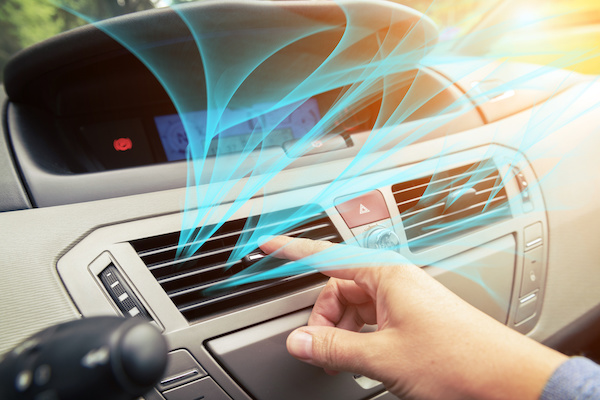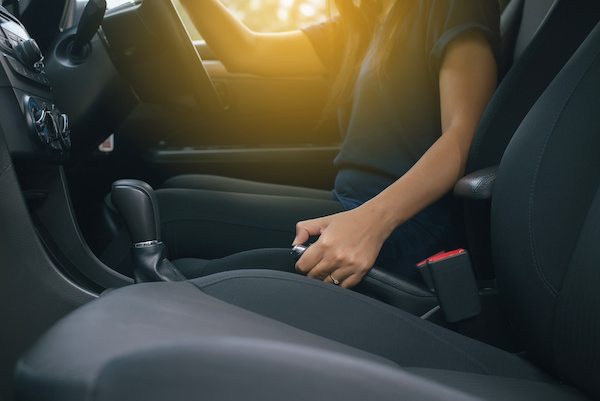Posted on 3/29/2023

Spring is here, and with warmer weather and longer days ahead, it's time to start planning some fun activities for your car. Whether you're a car enthusiast or just searching for ways to enjoy the outdoors with your ride, we've put together a list of springtime car activities to add to your to-do list. Take a Scenic Drive Springtime is the perfect season for a scenic drive. Roll down your windows and take in the beautiful sights and sounds of nature. You can plan a route through the countryside or along the coast, or simply take a leisurely drive through your local park or nature reserve. Just remember to obey traffic laws and be mindful of other drivers and pedestrians. Attend a Car Show or Meetup Springtime is also the season for car shows and meetups. Check your local events calendar for upcoming shows and gatherings, and bring your car out for some fun in the sun. You can meet other car enthusiasts, swap stories, and show off your ride. And if you're feeling co ... read more
Posted on 2/27/2023

When the temperatures start to rise, the last thing you want is for your car's A/C to be blowing warm air. Here are some reasons why this might be happening: Low Refrigerant: One of the most common reasons for warm air coming out of your A/C is low refrigerant levels. Refrigerant is responsible for cooling the air in your car, and if there isn't enough of it, the air will be warm. Leaks: If there is a leak in your A/C system, refrigerant can escape and cause low levels. It's important to have any leaks repaired as soon as possible to prevent further damage. Blocked or Clogged Condenser: The condenser is responsible for cooling the refrigerant, and if it becomes blocked or clogged with dirt or debris, it can prevent the refrigerant from cooling properly. Malfunctioning Compressor: The compressor is responsible for compressing the refrigerant, and if it's not working properly, the refrigerant won't be able to cool the air. Electrical Issues: A malfunctioning elec ... read more
Posted on 1/31/2023

Some people love their cars, while others don’t appreciate them enough. Whether you are one of those vehicle owners or somewhere between, don’t forget about your vehicle this valentine’s day. Like your partner in life, your car is the next most dependable thing in your life. To keep your car and its engine happy, here are five ways you can show your car some love this holiday. 5 Ways to Show Your Car Some Love for Valentine’s Day Inspect and Restore Your Lights - With winter in full swing and sunsets earlier in the afternoon, your vehicle’s lights are more important now than ever. We recommend checking all your car lights for any defects or dimness. They include your headlights, fog lights, brake lights, tail lights, and blinkers. If your headlight covers look really foggy or yellow, consider getting a restoration kit. Change Your Wiper Blades - Wiper blades are one of those car parts that you cycle through the q ... read more
Posted on 12/30/2022
.jpeg)
Car batteries are essential components of a vehicle, providing the power needed to start the engine and keep it running. Unfortunately, car batteries can die in the winter due to various factors. In fact, the cold temperature reduces battery life by 20% to 50%. So, why does the cold use up the battery's energy? This article will discuss two of the most common reasons car batteries die during winter. Cold Temperatures The cold temperatures of winter can be tough on car batteries. As temperatures drop, the chemical reactions that power the battery slow down, reducing its ability to hold a charge. This can cause the battery to die prematurely, leaving the driver stranded. Additionally, cold temperatures can cause the battery fluid to freeze, which can damage the battery's internal components and lead to a complete failure. It is crucial to keep the battery warm by parking in a garage or using a battery blanket to prevent this from happening. Lack of Use Another common reason ... read more
Posted on 11/10/2022

Most motorists are led to believe that the emergency brake should only be used on rare occasions, that it shouldn’t be touched unless an emergency is occurring. Maybe, they feel like they should only use this parking brake when parked on a steep hill. While you should use the parking brake in those conditions, it is best to use the parking brake every day or as often as possible. 1) Parking It doesn’t matter whether you drive with an automatic or manual transmission, you should always utilize the parking brake. When parking, please remember to engage the emergency brake before putting it into parking gear. Not only will this give you added stability when parking on steep hills, but it will relieve stress on the transmission and other components. Many people are left to believe that this secondary brake component isn’t necessary when parking on flat ground. However, it is a great habit to get into. 2) Emergencies Obviously, th ... read more